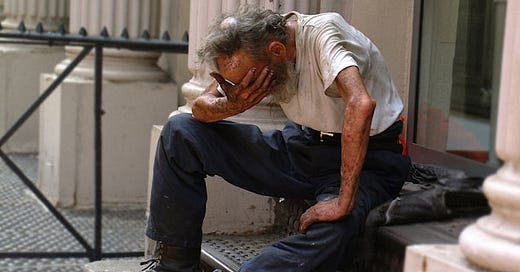Hello everyone,
Am having writers block this week. Usually have so many topics in my head it can be hard to choose. But this week, nothing in there. Then I saw a reminder about mental health awareness week. So here is an opportunity seized, to talk about one of these pet hates I have!
As a therapist the title might look like I am unsupportive of mental health awareness! Of course, this is not true. I spend all my days helping with mental health.
I have looked up the dates for mental health awareness and am a bit confused as there are days (October) and a week and a month. But it doesn’t really matter!
Why is this a pet hate?
Because this picure below is what most people visualise when they see the words ‘mental health’ and then there is avoidance of this topic. The latest research from MIND suggests we are actually moving backwards with our attitudes towards mental health
Photo by Ben Hershey on Unsplash
I do always feel the need to qualify what I am saying and referring to. So this article is not about the reality of the picture above, it is about the idea of having a mental health awareness day. Because what is depicted in this picture is a reality, sadly, for many. All my clients start off in distress. But this is not the mental health of many. We can all learn to improve how we manage our minds, but we all start from different places.
When you see something about mental health awareness week, what do you think? Is it, oh that is a good reminder, I am going to try and do something differently, or OMG not another one of these, then go back to worrying and total avoidance?
Unfortunately, what I see, day to day, is that the term ‘mental health’ is viewed as a problem. A stigma, something to be feared. An illness or worse, a disease. It is associated with bad times, difficult times, suicide, depression, desperation, weakness, not being able to cope, being isolated, shunned (there is an old fashioned word!) or weak, just to mention a few. And all of that can be true, but it is not the whole story.
The experience of our minds (our mental health) is unique to everyone. What makes one person happy and feel safe is not what will make someone else feel safe. By safe I mean feeling ok, not worrying or anxious, that is when we don’t feel safe. Our ability to feel we can cope, manage our lives, have choices, can make choices, can make reasonable and proportionate risk assessments, have fun, feel emotions (all of them!) and be able to regulate them. We all have meltdowns at times, that is also part of being human, we get overwhelmed and then we recover. That is ok. The feeling we are a good person, confident in expressing our opinions, how we get on with others. Some of us prefer to be more solitary, others more socialable. There are no rights and wrongs. All these things and more, is our mental health (that feels grammatically incorrect, but you know what I mean).
How many times do others impose what makes them feel safe on us and then we don’t feel safe? If going to a party is someone’s best possible thing to do they can sometimes forget that forcing someone else to go is that person’s worst nightmare.
Mental health is not always what we assume. It is not good or bad, it is very very complex and constantly changing. We have tricky brains, it is not our fault, they are a product of evolution. But we can understand ourselves and others more. We can listen to what people are asking of us to improve their mental health. To note force them into that party and be kind about it.
What can you take from these ideas to improve your feeling of safeness or maybe help someone else feel psychologically safe?
My little dream is of a world where we treat people who broke their leg the same as if they experience anxiety. A world where we can hear a ‘no, I don’t want to do that’ and respect that, not impose our values on others, give unsolicited advice, be able to truly listen and a world where there is kindness, fairness and no judgement. That is a day I would like to see.
Photo by Jacqueline Munguía on Unsplash
With all kind wishes
Jane
Accredited Cognitive Psychotherapist
Cognitive Behaviour Therapy (CBT), Compassion Focussed Therapy (CFT), Mindfulness & Acceptance and Commitment Therapy (ACT)
➡️If you would like to work with me on a 1:1 basis you can contact me at: mail@janewatkinscbt.co.uk
Subscribe now (it is all free at the moment) and join the movement towards healthy self-esteem development, something we can all benefit from, for ourselves and those around us.





